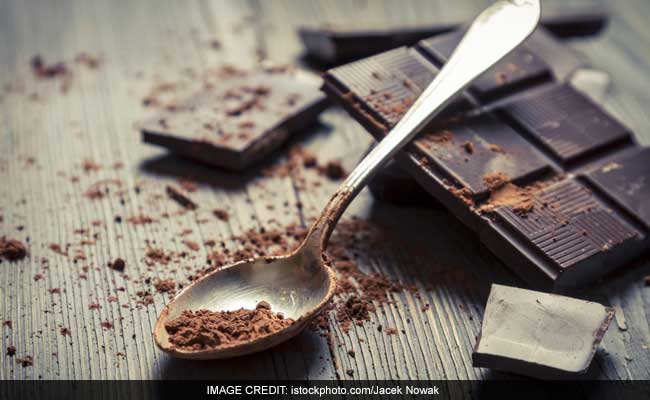Cholesterol: "There is also evidence that cocoa may help prevent the oxidation of blood cholesterol and decrease the tendency for blood clotting." says Mukerjee

Cholesterol: dark chocolate and other foods rich in antioxidants can help reduce cholesterol
In one of her recent posts, nutritionist Anjali Mukerjee discusses the impact of consuming dark chocolate on our cholesterol. She explains, “Dark chocolate is a good source of an antioxidant called catechins. There is also evidence that cocoa may help prevent the oxidation of blood cholesterol and decrease the tendency for blood clotting. However, it must still be consumed in moderation.”
She further explains, “Studies show that intake of Cocoa powder (in dark chocolate) helps reduce cholesterol due to the presence of polyphenols & flavonoids in cocoa. So, cocoa derivatives such as at least 70% dark chocolate contain a high amount of polyphenols, which are responsible for improved health by raising good cholesterol (HDL), lowering blood pressure & blood sugar levels & reducing the risk of heart disease. Please note that using Cacao powder is better than using cocoa powder as it is richer in Polyphenols.”
She later suggests the best way to consume dark chocolate. She writes, “The best ways to add Chocolate to your diet are: Blend 2 tbsp of Raw Cacao powder into one cup of almond milk. Add 2tbsp of coconut cream & some stevia or monk fruit as per your taste. You may also choose jaggery or honey (if you are not diabetic) Enjoy this Cacao powder Blend every other day or twice a week to benefit from its heart-protecting properties.”
She ends by mentioning, “Cacao powder or Cacao nibs are commonly available these days.”
According to a meta-analysis that was published in 2011 in the European Journal of Clinical Nutrition, eating dark chocolate reduces low-density lipoprotein (LDL) and total cholesterol levels over the course of a short period of time. Data from 10 clinical trials in which 320 participants consumed dark chocolate for 2 to 12 weeks were examined by researchers.
In individuals with type 2 diabetes, eating chocolate with a high cocoa polyphenol content is helpful at raising HDL levels, according to a 2010 study that was published in the journal Diabetic Medicine.
In this small 12-person trial, researchers advised consuming 45 grams of chocolate daily for 8 weeks. Participants were split evenly between the high-cocoa chocolate that is rich in polyphenols and regular high-cocoa chocolate.
Results indicate that the low polyphenol chocolate had no effect. The HDL and total cholesterol levels were both significantly higher in the high polyphenol group.
More than 300 naturally occurring compounds can be found in chocolate. Caffeine, sugar, and cocoa are among the most popular. Flavonoids are one of the less well-known substances found in chocolate. Red wine contains flavonoids, which have been shown to reduce LDL cholesterol levels and protect against coronary heart disease.
In addition, stearic acid makes up one-third of the chocolate's fat composition. Despite being a saturated fat, stearic acid does not seem to increase cholesterol levels and, in accordance with a 2005 review, may even lower them.
Here is Nutritionist Mukerjee's Post:
Make sure to incorporate dark chocolate and other LDL-lowering foods into your diet if you wish to reduce your cholesterol.
Disclaimer: This content including advice provides generic information only. It is in no way a substitute for a qualified medical opinion. Always consult a specialist or your own doctor for more information. NDTV does not claim responsibility for this information.
DoctorNDTV is the one stop site for all your health needs providing the most credible health information, health news and tips with expert advice on healthy living, diet plans, informative videos etc. You can get the most relevant and accurate info you need about health problems like diabetes, cancer, pregnancy, HIV and AIDS, weight loss and many other lifestyle diseases. We have a panel of over 350 experts who help us develop content by giving their valuable inputs and bringing to us the latest in the world of healthcare.














